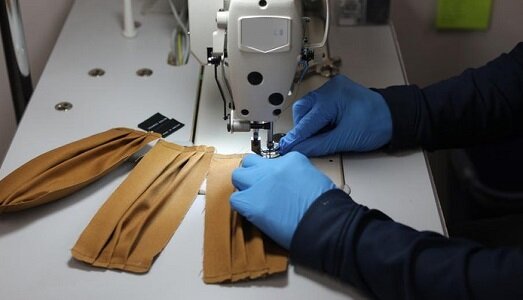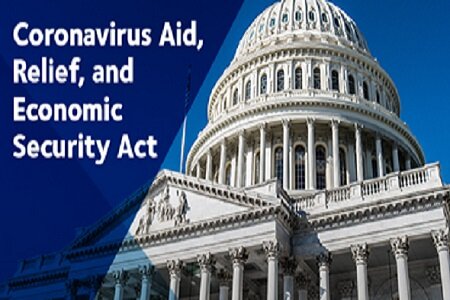Giving Back Makes A Difference

From singing on the balcony to community cheers for those on the front lines to young people grocery shopping for elderly neighbors, people around the world are reaching out in support of others during these difficult days.
From small personal gestures to larger contributions, if you have the desire to give back to your community, now is a perfect time.
Show your appreciation by giving what you can
While many of us stay safely at home, there are others performing extra services. Are you having your groceries delivered? Ordering take-out? Tip generously. Or how about buying gift cards from a small business or restaurant?
Whatever and however you give, any extra dollars you add will be greatly appreciated—and are well deserved by those out there risking their own safety for the good of others.
The extra money you can afford to give will mean a tremendous amount to the individuals you pay. But don’t overstretch your finances; give only what you can. Even a little can mean a lot. And the fact that you care enough to offer may mean even more.
Small personal gestures have a big impact
It isn’t always about giving money. Check with older neighbors to see if they need something from the market or the pharmacy and offer to pick it up for them. No matter your age or your need, just knowing that someone else is willing to look out for you can make all the difference.
Supporting your community expands your reach
As incomes are reduced for many people, so are contributions to community charitable organizations like food banks and other services for families in need. If you’re uncertain what exists in your community, do a little local research.

Feeding America has a tool for finding your local food bank. Great Nonprofits can help you zero in on organizations in your area, giving you information about what they do and what they need.
Also, think about the skills you have and how you could give of your time. Are you particularly tech savvy? Maybe you could offer assistance to teachers struggling to keep up with offering classes online.
Are you good with a sewing machine? Sewing masks for friends, extended family or even local merchants could become a new specialty. Or consider reaching out to a local senior community. Helping isolated seniors could be as simple as making a phone call to say hello.
It’s easy to give locally or globally
Many organizations are expanding their programs to meet specific COVID-19 related needs. For example, Boys & Girls Clubs of America(BGCA),supporting families across America, or DonorsChoose is helping teachers provide materials to their students now learning from home. BGCA has created a relief fund to provide meals, offer virtual learning and more.
Global Giving is a crowdfunding organization currently providing COVID-19 relief. Organizations such as UNICEF and Save the Children focus specifically on helping kids around the world through this crisis, to name just a few.
Do your research before you give and beware of fraudsters
If you’re uncertain where to direct your contributions, want to zero in on a specific charity, or compare charitable organizations, sites such as Charity Navigator or Guidestar are excellent resources. You can get detailed information about the purpose, track record, financials and reliability of hundreds of nonprofits. They also provide advisories about charities that don’t meet specific standards.
The Federal Trade Commission warns that fake charities and fundraisers use the same tactics to reach donors as legitimate charities, whether face-to-face, by email, phone or social media. It’s especially important to do your research before giving out any personal information or making a donation.
Make giving a tax-smart part of your financial plan

Make giving a part of your financial plan. It’s not only a way to share your good fortune, but also can have tax advantages for you and your family.
To encourage giving and make it easier during the pandemic, the CARES Act provides a new “above the line” charitable contribution deduction of up to $300 if you claim the standard deduction in 2020.
For people who itemize deductions, it expands the limits on charitable contributions from 60 percent up to 100 percent of 2020 adjusted gross income.
Donor-advised funds are a great way to give today and tomorrow
A donor-advised fund provides another great way to save on taxes at the same time that you contribute to causes you care about. You can donate cash or investment securities (like stocks) and then use the funds to make grants to most 501(c)(3) organizations. Any money not distributed may be invested, potentially increasing the amount available to give.
While contributions to a donor-advised fund aren’t part of the CARES Act expanded charitable deduction limits, you can typically gift appreciated stock directly to your donor-advised fund without having to pay capital gains taxes.
This can leave you with even more money to direct to your favorite charities. Your tax or financial advisor can help with the details.
This blog was excerpted from an online article by Carrie Schwab Pomerantz,CFP®, Board Chair and President, Charles Schwab Foundation; Senior Vice President, Schwab Community Services, Charles Schwab & Co., Inc.; Board Chair, Schwab Charitable
